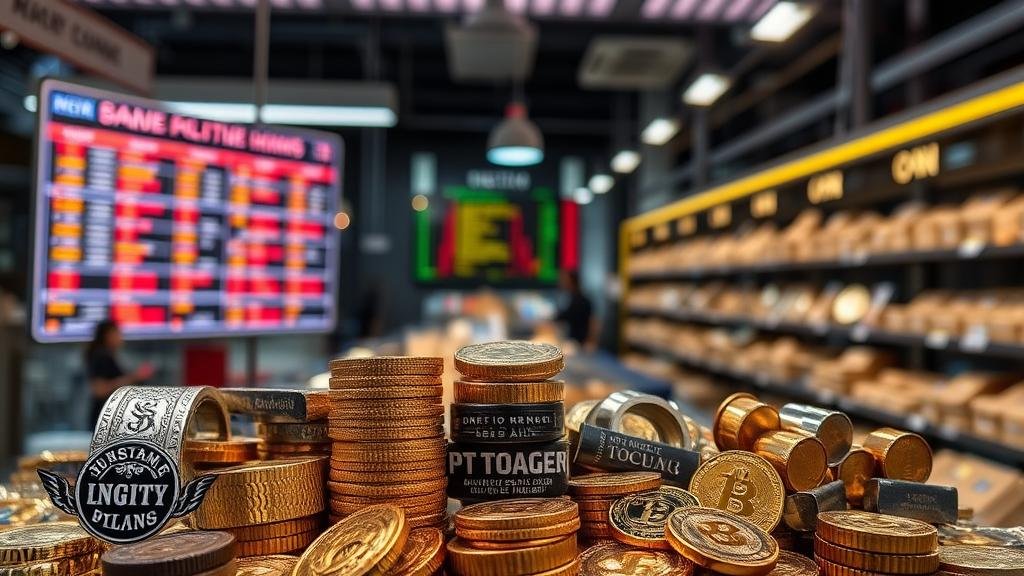Understanding Metal Trading Hubs for Selling Precious Metals
Understanding Metal Trading Hubs for Selling Precious Metals
The market for precious metals, including gold, silver, platinum, and palladium, is both extensive and complex. Metal trading hubs play a critical role in facilitating transactions and establishing prices that are vital for businesses and investors alike. This article will explore the concept of metal trading hubs, the different types available, their significance in the markets, and best practices for engaging with these platforms.
What are Metal Trading Hubs?
Metal trading hubs are centralized marketplaces where buyers and sellers can transact in precious metals. e hubs provide the necessary infrastructure to facilitate trading activities, ensuring liquidity, transparency, and pricing through a variety of mechanisms.
Examples of prominent metal trading hubs include:
- The London Bullion Market Association (LBMA) in London
- The New York Mercantile Exchange (NYMEX) in New York
- The Shanghai Gold Exchange (SGE) in China
The Primary Functions of Metal Trading Hubs
Metal trading hubs serve several key functions in the precious metals market:
- Price Discovery: Hubs are integral to establishing market prices through auction and trading mechanisms, reflecting supply and demand.
- Liquidity: By aggregating buyers and sellers, these hubs ensure that transactions can occur efficiently, reducing the cost of trading.
- Standardization: Trading hubs usually standardize metal quality and quantity, making it easier to assess value and execute transactions.
Types of Metal Trading Hubs
Understanding the types of trading hubs can help investors and sellers find the most appropriate platform for their needs:
1. Physical Hubs
These are locations where physical metals are stored and traded. Examples include vaults operated by banks in key financial cities. Physical hubs are important for buyers looking for the tangible element of precious metals.
2. Electronic Trading Platforms
Accessing metals through digital platforms provides ease of transaction, speed, and accessibility. Platforms such as BullionVault and APMEX allow users to purchase and sell metals online easily.
3. Exchange-Traded Markets
Markets like the COMEX facilitate trading in futures and options on precious metals rather than the direct sale of the metals themselves. This allows for speculative trading and hedging strategies.
The Importance of Location
The geographical location of a trading hub can significantly impact its operations and client base. Major hubs like London and New York benefit from high trading volumes due to their financial infrastructure and international reach.
- London: Known for its robust gold trading market.
- New York: A key player in futures trading and options.
- Shanghai: Increasingly important due to Chinas demand for gold and silver.
Challenges in Metal Trading Hubs
While trading hubs provide vital services, they also present challenges. Some of these include:
- Price Volatility: Precious metals can experience significant price fluctuations, making trading risky.
- Regulatory Risks: Compliance with local and international regulations can impact trading practices.
Case Study: The London Bullion Market Association
The LBMA is one of the most influential precious metals trading hubs globally. It facilitates a large volume of transactions and sets global benchmark prices for gold and silver. By employing a system of registered dealers, the LBMA maintains strict standards for trading, providing stability in pricing and high levels of trust among participants.
Best Practices for Engaging with Metal Trading Hubs
For individuals or businesses looking to sell precious metals, understanding best practices can enhance the experience:
- Research Trading Fees: Be aware of any fees associated with trading on specific platforms.
- Understand Market Conditions: Keep abreast of market trends that can affect metal prices before engaging in transactions.
- Verify Credentials: Ensure that the trading hub you choose is reputable and has proper regulatory approval.
Conclusion
Metal trading hubs serve a fundamental role in the global precious metals market by providing a platform for liquidity, price discovery, and standardization. By understanding the structure and function of these hubs, participants can make informed decisions that align with their trading goals. Whether trading physically, electronically, or through exchanges, awareness of market dynamics and best practices will enhance ones ability to navigate this essential component of the financial landscape.



